Search Images
Browse Content (p. 861)

Image
Lamashtu
In Mesopotamian Mythology, Lamashtu was a female demon or goddess who would imperil women during childbirth and even kidnap babies while breastfeeding. This is an artist's impression by Elizabeta Gubanova.

Image
Kali
Kali is the Hindu goddess (or Devi) of death, time, and doomsday and is often associated with sexuality and violence but is also considered a strong mother-figure and symbolic of motherly-love. This is an artist's impression of the goddess...

Image
Coatlicue
Coatlicue (pron. Co-at-li-cu-e) or 'Serpent Skirt' was a major deity in the Aztec pantheon and regarded as the earth-mother goddess. Represented as an old woman, she symbolised the antiquity of earth worship and she presents one of the most...
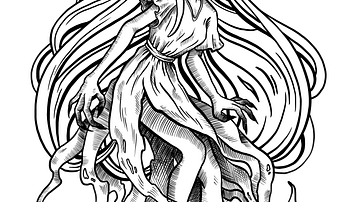
Image
Banshee
Banshees are female spirits heralding the death of a family member in Irish mythology. They are usually depicted as wailing or shrieking. This is an artist's impression of a Banshee by Elizaveta Gubanova.

Image
Ixtab
Ixtab was the Maya goddess of suicide who guides suicides to eternal paradise - depicted as the decaying corpse of a woman hanging from a noose in the heavens. This is an artist's impression of Ixtab drawn by Chloe Bonnet.
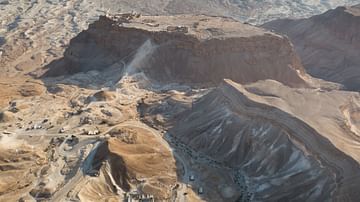
Image
Masada
The Masada (“fortress” in Hebrew) is a mountain complex in Israel in the Judean desert that overlooks the Dead Sea. It was first constructed in the 1st century BCE and renovated by Herod the Great (37-4 BCE).
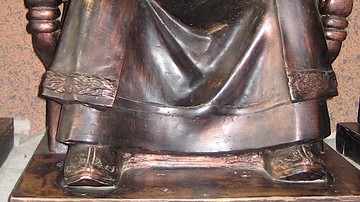
Image
Chagatai Khan
A modern representation of the Mongol leader Chagatai Khan (1183-1242 CE), the second oldest son of Genghis Khan (r. 1206-1227 CE), who was the first ruler of the Chagatai Khanate. (Mongol palace, Gachuurt, Mongolia)
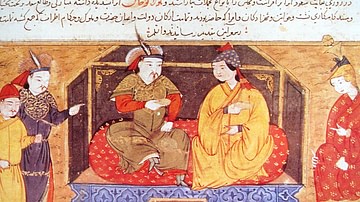
Image
Hulegu & Dokuz Kathun
A 14th century CE illustration showing Hulegu, founder the Ilkhanate (1260-1335 CE). Hulegu reigned as Ilkhan from 1260 to 1265 CE. Seated next to him is his wife Dokuz Kathun. (From an edition of Rashid al-Din Hamadani's 'Compendium of Chronicles'...
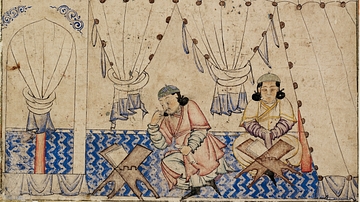
Image
Ilkhan Ghazan Studying the Koran
A 14th century CE illustration of Ghazan (r. 1295-1304 CE), ruler of the Ilkhanate, studying the Koran. (National Library, Berlin)
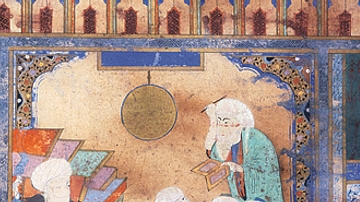
Image
Nasir al-Din al-Tusi & Observatory
A 16th century CE illustration showing the famed Persian astronomer and scientist Nasir al-Din al-Tusi (1201-1274 CE) in his observatory at Maragha, then part of the Mongol Ilkhanate. (British Library, London)